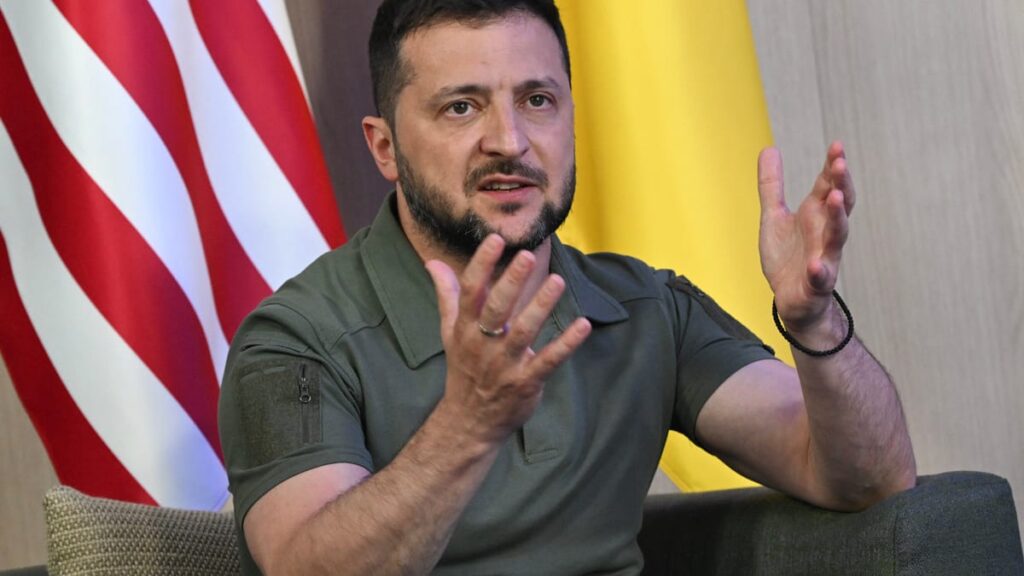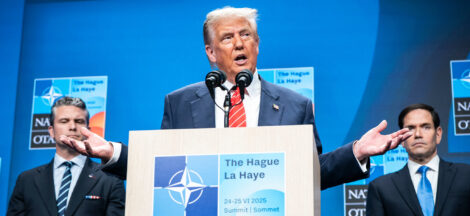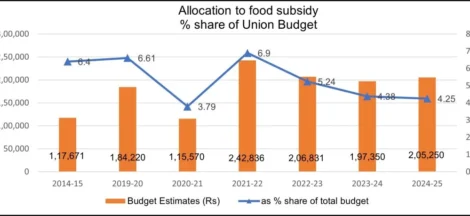By M A Hossain
By any military measure, Ukraine’s ‘Operation Spider Web’ was an astonishing success. In a meticulously planned operation, Ukrainian drones struck deep into Russian territory, obliterating at least 40 military aircraft—including nuclear-capable Tu-95 and Tu-22M3 bombers—in a single, devastating blow. The attack revealed not only meticulous Ukrainian planning over 18 months but also the glaring vulnerabilities of Russia’s so-called impenetrable airspace. It was a coup de main that will be studied in military academies for decades. But as history too often reminds us, tactical brilliance can be the prelude to strategic disaster. The world now holds its breath, waiting to see what comes next.
The immediate question is not whether Russia will respond—it will—but how. President Volodymyr Zelenskyy must now reckon with that distinction. Launched on the eve of scheduled peace talks in Istanbul, Spider Web didn’t just dismantle a third of Russia’s strategic bomber fleet—it may also have dismantled the fragile architecture of diplomacy that remained. If this was a calculated move to strengthen Ukraine’s bargaining position, it was cynically timed and perilously shortsighted. It risks transforming what was still, however tenuously, a brutal regional war into an epoch-defining catastrophe.
We’ve seen this before. In 1914, the assassination of an Austrian archduke triggered a cascade of commitments, mobilizations, and miscalculations that led to a global conflagration. In 1941, Japan, feeling cornered by U.S. embargoes, attacked Pearl Harbour—a masterstroke of surprise that ultimately led to its own annihilation. And in 1962, the Cuban Missile Crisis brought the planet within inches of nuclear oblivion, saved only by backchannel diplomacy and the mutual recognition of unacceptable costs.
Ukraine’s gamble did not occur in a vacuum. It came at a time when President Trump has been seeking to limit American exposure and end the war, while Europe is increasingly divided over how far to support Kyiv without inviting catastrophe. It also came amid a U.S. political landscape reshaped by Donald Trump’s return to the White House, a president who has made clear his disinterest in “forever wars” and who, notably, has remained silent on this latest escalation. The American public, too, seems less inclined to bankroll Kyiv’s ambitions, particularly when those ambitions risk dragging NATO into a direct confrontation with a nuclear adversary.
Zelenskyy’s supporters will argue this operation was necessary—a bold stroke to jolt Russia from its entrenched positions and to demonstrate Ukraine’s capability for long-range asymmetric warfare. They will say it sends a signal to Moscow: Ukraine cannot be intimidated and has the resolve to strike at the heart of Russian military power. They may even compare it to Israel’s 1981 strike on Iraq’s Osirak nuclear reactor—a preemptive blow to degrade a long-term threat.
But the analogy doesn’t hold. Israel acted in secrecy against a latent, undeclared threat. Ukraine struck openly, on the record, against a nuclear-armed power just hours before peace talks. Worse, it struck not against fielded forces in battle, but strategic nuclear bombers inside Russia, a move that risks prompting a doctrinal response from Moscow. Since its updated nuclear posture last year, Russia allows for nuclear use in response to conventional strikes that threaten its strategic deterrent—exactly the kind of attack Spider Web represents.
It is no exaggeration to say that Zelenskyy has lit a fuse dangerously close to a powder keg. Which raises a larger question: What exactly was the purpose of this attack?
Some suspect it was less about battlefield utility and more about political optics. With Western support waning and battlefield momentum stalled, Zelenskyy may have felt compelled to show that he still commands initiative—that he remains a credible partner worth backing. There’s also speculation that this operation was a plea for continued arms shipments now under threat from Trump’s “America First” administration.
But if this was an attempt to impress or pressure Western allies, it may backfire. The attack has already emboldened voices in Washington and Brussels who argue that the war is spiralling out of control. And it gives ammunition to Moscow’s propaganda machine, which is portraying the strike as Russia’s own Pearl Harbour. When a nuclear power perceives itself as the victim of an existential assault, dangerous decisions follow.
We must also ask: was NATO involved? Did European allies—through satellite intelligence or remote drone operations—have a hand in the planning or execution? If so, this operation could cross a previously avoided threshold, bringing NATO into direct conflict with Russia. That’s not just a strategic misstep—it’s a generational blunder.
President Zelenskyy must now answer for the consequences of his audacity. Yes, the strike humiliated Russia. Yes, it exposed the rot within Moscow’s security establishment. But the cost of that humiliation could be paid not just in Ukrainian lives, but potentially in the lives of millions across Europe and beyond, should Putin interpret this as justification for escalation.
History is littered with leaders who mistook tactical victories for strategic triumphs. Napoleon’s march into Moscow, Hitler’s advance into Stalingrad, even George W. Bush’s “Mission Accomplished” moment in Iraq—all stemmed from an overestimation of short-term success and a blindness to long-term consequence.
Zelenskyy, admired as he rightly is for his courage and resolve, must now be judged for his judgment. By launching Spider Web when he did, and in the manner that he did, he may have sabotaged the very peace he claims to seek. Worse, he has placed the entire international order at the mercy of a man like Vladimir Putin, whose worldview is shaped not by cost-benefit logic but by grievance, pride, and a paranoid sense of historical destiny.
The West must now perform a high-wire act. It must reaffirm support for ending the war. It must also demand restraint and a return to diplomacy. A nuclear confrontation, even a “demonstrative” one over a deserted military base, would rewrite the rules of war and peace for generations to come. It would show that nuclear blackmail works—or that nuclear retaliation can be normalized. Neither outcome is acceptable.
Operation Spider Web may be remembered as a brilliant military feat. But unless it is followed by swift and sober diplomacy, it risks becoming a historical monument to hubris—the kind that ignites wars from which there is no return. The lesson from history is chillingly clear: great fires often begin with a single, dazzling spark. (IPA Service)
By arrangement with the Arabian Post




 In Bengal BJP, The Race Between Majumdar And Adhikari Is On To Emerge As Cm Candidate
In Bengal BJP, The Race Between Majumdar And Adhikari Is On To Emerge As Cm Candidate 